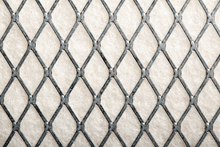Air Filters And Your HVAC System: Why The Highest MERV Isn’t Always Best
 There’s a learning curve involved for homeowners when choosing the best air filters for their HVAC systems. Minimum Efficiency Reporting Value (MERV) ratings, showing the overall efficiency air filters have for trapping particles of a certain size, are useful. But they’re not the only factor homeowners should consider. Learn the ins and outs of MERV ratings, and why airflow and lifetime efficiency also dictate your choice.
There’s a learning curve involved for homeowners when choosing the best air filters for their HVAC systems. Minimum Efficiency Reporting Value (MERV) ratings, showing the overall efficiency air filters have for trapping particles of a certain size, are useful. But they’re not the only factor homeowners should consider. Learn the ins and outs of MERV ratings, and why airflow and lifetime efficiency also dictate your choice.
Using MERV
Manufacturers and independent organizations test checking hvac filter six times to gauge how filters perform when they’re new, and over time. MERV uses the initial rating a filter scores, and then gives it the appropriate rating between 1 and 16 (High Efficiency Particulate Air [HEPA] filters score between MERV 17 and 20).
Basic filters score between MERV 1 to 4, trapping large dust particles, and allowing sufficient airflow; MERV 8 to 12 capture even smaller particles while generally providing sufficient airflow; MERV 13 to 16 are high-efficiency air filters, trapping very small particles; however, they’re generally reserved for commercial applications because of how they restrict airflow.
Understanding efficiency
The MERV rating should not be used in isolation to select an air filter. Remember those six ratings? The American Society of Heating, Refrigeration & Air Conditioning Engineers (ASHRAE) tested various MERV-rated filters, comparing their performance over all six ratings, and their findings were surprising. They tested a MERV 8 and MERV 11 filter, and discovered the MERV 8 filter performed better over time.
Considering airflow
The reason behind these surprising findings involve airflow. With use, a MERV 8 filter has comparatively higher airflow rates than a MERV 11 filter. Over time, the MERV 11 filter becomes more dense, restricting airflow, starving the HVAC system for air, and decreasing its ability to trap particles. The MERV 8 filter didn’t perform as well initially, but it’s ability to trap particles increases with time. As the surface material fills with particles, it becomes more dense, but airflow capacity doesn’t decrease, comparatively speaking.
The bottom line when it comes to choosing air filters? Homeowners should consult a professional, like those at Air-Tro. We serve homeowners in greater Pasadena.
Our goal is to help educate our customers in the Pasadena, California area about energy and home comfort issues (specific to HVAC systems). For more information, visit our website.
Image courtesy of Shutterstock
